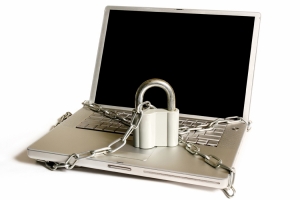Staying secure: Why antivirus software may not be enough
by Phillip Presley StudentRunning a trusted antivirus software program computers is a necessity to keep personal computers safe. However, solely using a software program might not be enough to keep your computer as safe as possible. Viruses are constantly updating and developing to slip through the cracks and onto your computer. There are many other types of security threats to your personal information and an antivirus, while a good start, isn’t enough to make sure that you will always be safe from potential hazards.
 Online crimes are growing in numbers every day. Many of
these crimes do not involve malware at all, but instead use new types of
identity theft, phishing, and other passive attacks. A popular crime right now
is to send out mass emails concerning the winning of a foreign lottery. The
email contains information stating that you have won millions of dollars and to
receive your money, you need to send a small amount of money to cover customs
and other wire transfer fees. This type of email can be sent out to thousands
of people, and if one or two people fall for it, the criminal will have been
successful.
Online crimes are growing in numbers every day. Many of
these crimes do not involve malware at all, but instead use new types of
identity theft, phishing, and other passive attacks. A popular crime right now
is to send out mass emails concerning the winning of a foreign lottery. The
email contains information stating that you have won millions of dollars and to
receive your money, you need to send a small amount of money to cover customs
and other wire transfer fees. This type of email can be sent out to thousands
of people, and if one or two people fall for it, the criminal will have been
successful.
Obviously there are no foreign lottery winnings for you to claim. The thief wants you to send them the money they ask for willingly, and if you do it once, you might be willing to do it again. They will use their leverage against you until you realize it’s a trap. By then it’s too late. Be smart before responding to emails. Install a spam guard to your email to send these types of messages directly into a designated folder.
There are also other online traps that you need to watch out for. Avoid going to less than reputable websites, and never enter your personal information or credit card number on pages that are not listed as secured pages. Even if the site has positive intentions, there data may be hacked if they haven’t been following secure practice guidelines.
Create passwords that are complex and contain numbers, upper and lowercase letters, numbers and symbols. Change your passwords frequently to avoid hackers. You should also make the answers to security questions something that wouldn’t be easy to figure out through social media. If a hacker has your information and searches you on Facebook, they could potentially find your birthday, street you live on, mother’s maiden name, and other kinds of easy answers to security questions. You should also never have the same password for multiple accounts. Keep every account unique to prevent hackers.
Creating a risk management plan in case of emergency is a great way to foresee any potential hazards. Writing steps towards solutions can help you visually map out exactly what to do if you get a virus, a hacker, or any other kind of computer issue.
Be proactive about your web usage will help alleviate the probability of falling prey to a cyber criminal. While using antivirus software is a great start, there are a number of other measures to take to make your computer usage as safe as possible. Stay smart, don’t give out your information, and protect your private data.
Sponsor Ads
Created on Dec 31st 1969 18:00. Viewed 0 times.



